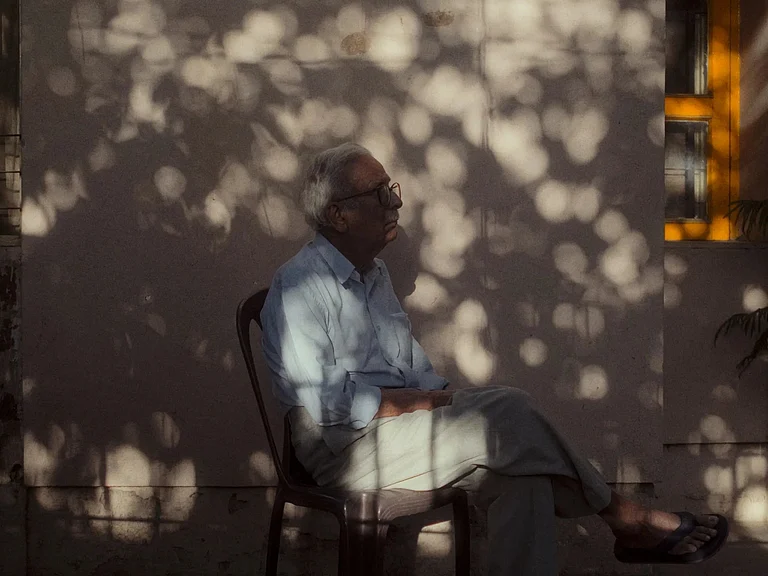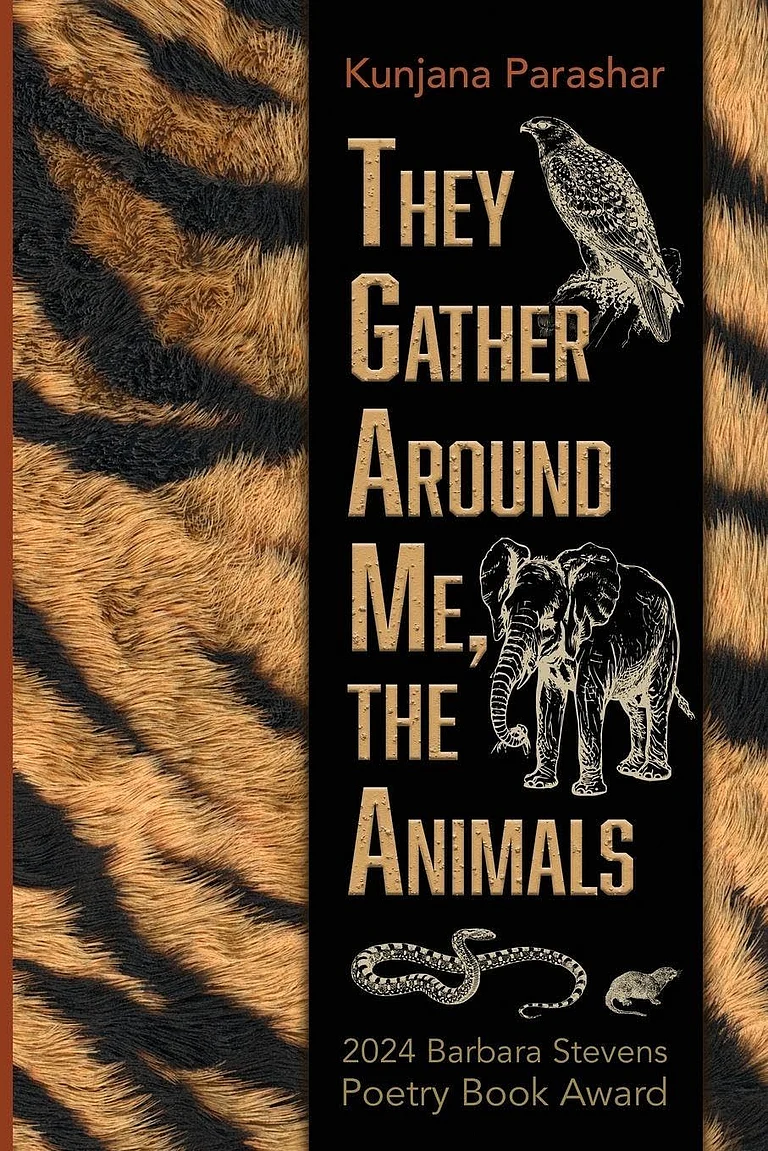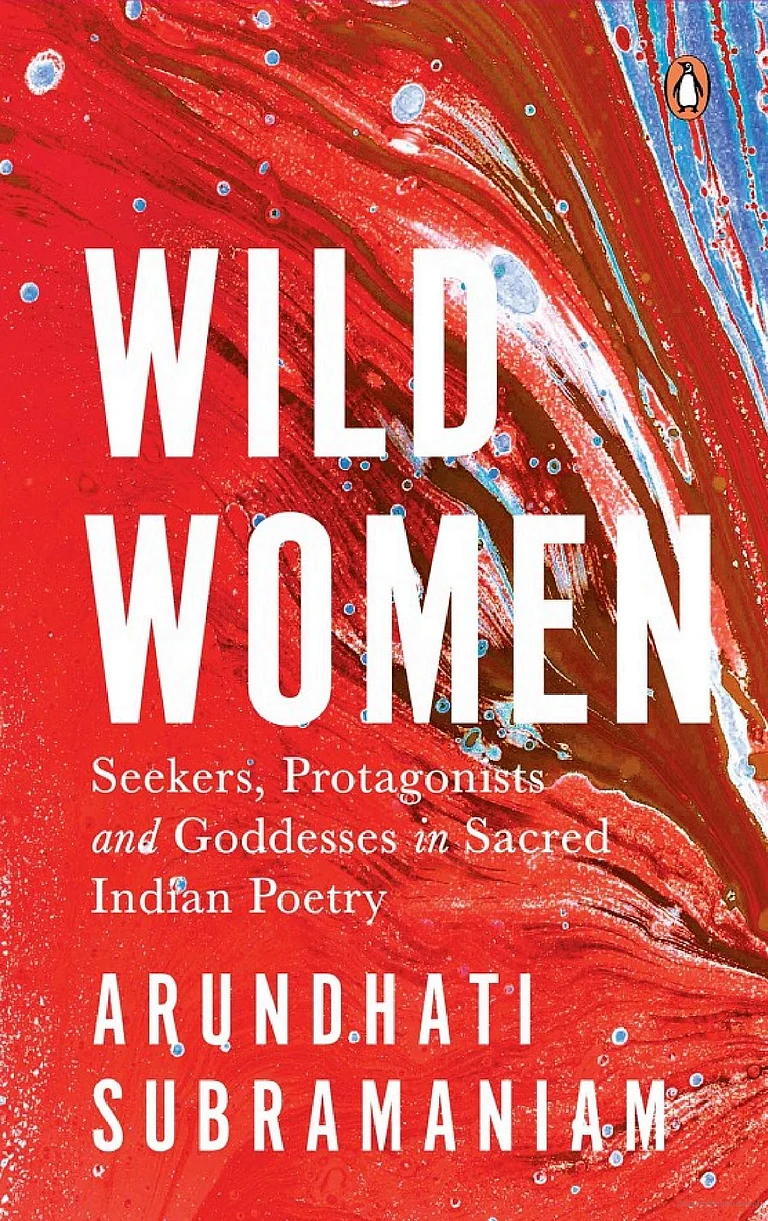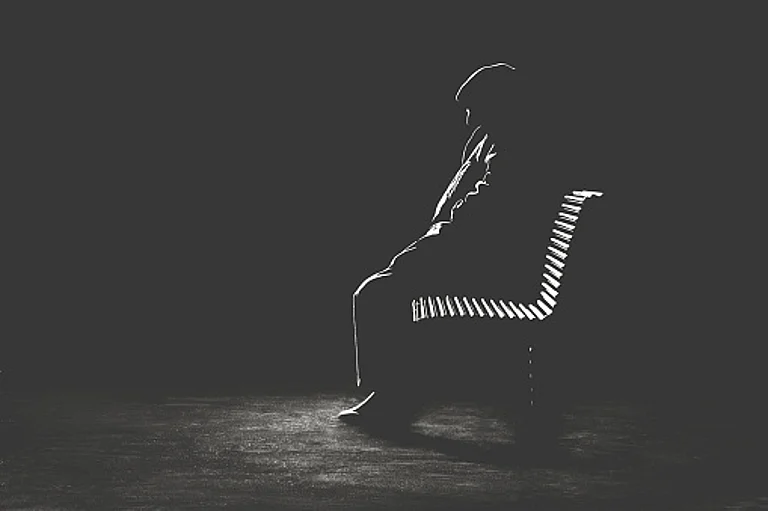Coins in Rivers
Written by Rochelle Potkar
Published by Hachette India, 2024
Pages: 168
Price: 450/-
The personal space of a human being is found as a reference, or a footnote of the small moments which we generally feel like not documenting. Rochelle Potkar’s new collection of poetry, “Coins in Rivers” tries to keep the instances happening in the lives of women who adhere to different strata of the society like a plankton. Planktons nurture the bed of an ocean, but they remain ideally constricted to the thought of a scientific mind. The poet too, gives birth to a seed weaving the skin of identity, which copulates with the gnawing affliction germinating in the mind of most women. Yet in the long run, the elementary conditions of society resist an approach, vision or rejuvenation. The poet also drafts the politics that functions to water the offspring of oppression.
In the Ti West directed movie, ‘Pearl’, the protagonist finds solace and pleasure to be the authority once she starts killing those who have taken the upper hand over her life. It is something extreme that oppression brews as a result mingled with fantasy. But before acknowledging the unfortunate deaths, we acknowledged the behavior that fed on her from inside and outside. It came out as a horror and slowly cultivated as a tale of the macabre of a woman’s conscience. In the poem, ‘Keyholes’, the poet transcribes a claustrophobic fear of being an opinionated woman with a thought that does not align with power. At the same time, the conditions that insulate her body and mind corrodes her existence; not just for what she is achieving, but for being from a home where physical entities have their own way to undermine her propagating choice and feelings.
Rochelle solidifies the statement when she writes:
If the nights fall over our skin, our bodies become bottles
of wine, with a crack against it. Dripping …dripping…
The hypocrisy of a bipolar and bifurcated society is horrific than those which are entirely oppressive. Admirers of Bukowski have understood how his reality does not bleed in his creations. Even after being a voracious reader of his poetry, he incised through all the layers of my conscience. Someone like him breeds more insecurity in me than a Marquis de Sade or Henry Miller since the latter ones have stripped their ideas completely. In the poem, ‘In That Land under
the Sun’, the poet addresses the bipolar mind of pretentious ‘male’ feminists. When the poet says: Her father was a village radical…but she tucks her wet sighs at the edge of her sari, she is showing us how a conditioned power mongering gender operates around those who are aware of it. A perfect demonstration of acceptance before a small or large crowd in the open nullifies oppression that happens behind closed doors.
At the same time, when the poet writes: and the women can’t even fight the men/who are not their husbands/because they know no poetry, she addresses the cultural dismantling of an entire gender from the inception of her growing-up. Even in the poetry community, we get adhered to the women poets by being judgmental and by assembling the privileges she carries like a baggage. With the advent of ‘MeToo movement’, we came to know how women irrespective of everything, are being cornered for the desire that’s nefarious. The collision of male ego and a woman’s voice percolates her strength using the toxic filter of masculinity. Women are still kept away from the resources that can take them to a place where the cohesion of justice and identity is not a cinematic fantasy.
The politics of the present time splits the kinder hearts and tender souls. They are bound to think in a different way under unkind and rigid situations. Through the poem ‘Surrender’, Rochelle Potkar states the relationship of an unkind nation, its deteriorated politics and the flag bearer of democracy i.e., a journalist. What determines the stand of a nation against oppressive politics? Ideally, it is always the nation’s inclination towards accountability and empathy. When the poet says: If I were a country and you my journalist/it would be a civil war, one too many/revolutions/changes in governments. /I would have jailed you/and kept you under CCTV, we get to see the nailing of the trait of empathy. The poem although ends on a weaker note with a pretty obvious intention making it appear like a struggling love story with a happy conclusion. But the tinge of hope the poem brings as it sinks in us feels good in the bleak and sad time we are living in.
Erotica, historically, has reached the zenith of the genre for women who managed to play with their desires and fuel them using a leaking pen. Rochelle’s erotic poem, ‘10 Things I Want to Do to You’, documents an array of her mystical offering which are meant to fertilize her lover’s senses. Lust seeks the spots where need and wish would get watered to create cracks to free the limbs of our mind. Foreplay is a process to navigate through the strengths and vulnerabilities associated with an attachment or relationship. To deepen it, the poet writes: wide-angle your thighs/like da Vinci’s Vitruvian Man of math/to know the coordinates of your desire. So, the vision pierces through the physical dimension and constructs seduction in places where the coordinates take her to titillate the desire of the one who is being seduced to be the warrior. It is a matter of exhaustion, and consumption. The poet equally uplifts and decimates ideological differences which usually creates unhealthy ripples in a relationship by scribbling: Lastly, I want to/kiss the arches of your feet/locate your Achilles’ heel/the varicose of your journey/rumble of a hero’s arrival – /left-foot tandav of ideology/right-foot ballet of universal manifestoes. The geography of a man’s body gets acknowledged only by a woman’s voice.
When an individual goes through the bits and pieces of adolescence, one gets to determine the traumatic and fruitful conditions that led to adulthood. Through the poem, ‘Somna’, the poet dissects the stages quite cinematically. In the web series, ‘Peaky Blinders’, Finn Cole played by
Michael Gray comes into the gangster world with the perspective of a teenager. He gets to both hate and love to be the authority. Eventually, the character succumbs in the shadow of sexual, monetary and authoritarian tension. In the poem too, the poet lifts the traumatic conditions we generally evacuate from our adolescent period. Like for example, when the poet writes: I lay awake even in orgasms. There are no latches on my doors. / The doors are in my head, unbolting the light in my nerve/ spotting darkly guns at trigger points, she brings clarity to what the body undergoes when the electricity of sadness, heartbreak, sexual tension and panic attacks. The softening of the already vulnerable body is a constant. The poem ends on a bitter note to give a company to those who are in need of someone who knows the kind of strange thoughts that strangulate them every night.
The memory of Earth is stronger than those who are leading a troop of intellect. It knows the address of a fragment that has fallen from someone’s navel, the dry wounds which cultivate itching, and the future written on the midrib and veins of leaves. ‘Displaced’, a poem adhered to the memory of Earth, explores nature’s act of remembering, and how it goes against the generation devoted in adding AI and subtracting conscience. The stanza of the poem where the poet grieves for the people who are being displaced to construct dams and industries, also addresses how nature always has a place for them. It remembers the injustice to then serve an amalgamate of lessons to those who are responsible for the creation of imbalance. When the displaced tribes count their wounds (a result of the imbalance), they find a wholesome abode beyond the sickness and grief. It is a disturbing poem which showcases cruelty using a measuring tape.
Coins in Rivers documents the several layers of human conditions and the quotients associated with them. It swings between the urban and not-so-urban life. There is a possibility that some readers may feel detached for the way life is written through these poems. Attachment with them, on the other hand, is going to be a consequence of constant and mindful reading. Suffering, love, lust, anger and hatred do not dwell in a stylized manner. The poet embroiders these feelings to let the tussle and touch echo within a single room of a non-physical home. A reader has to put some effort to be able to listen to what the poems have to offer using an essential but rare narrative.




























